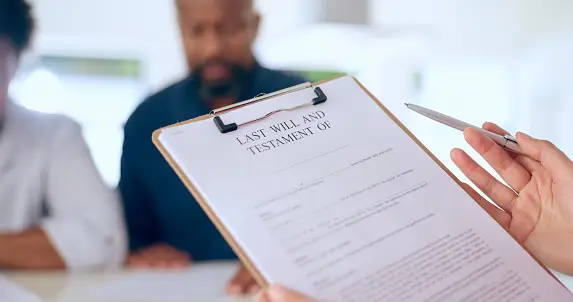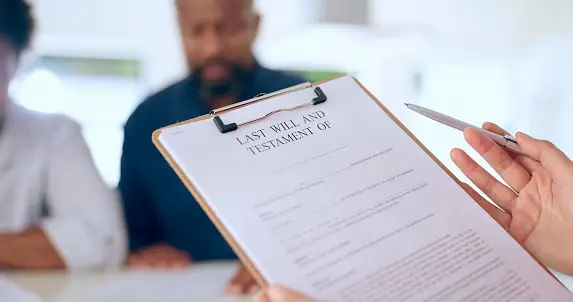
Estate planning is a crucial aspect of financial management, aiming to ensure that your assets are distributed according to your wishes after you pass away. This process involves creating a plan that includes wills, trusts, and power of attorney documents to protect your assets and provide for your loved ones. By taking the time to develop a comprehensive estate plan, you can avoid potential legal complications and ensure that your legacy is preserved.
Understanding Estate Planning
Estate planning is about ensuring your assets find their way to those you cherish most after you’ve passed away. It’s more than just deciding who gets what; it’s about peace of mind, knowing that your wishes are clear and legally documented. This process involves tools such as wills, trusts, and durable power of attorney documents to manage how your estate transitions. They work together to protect your assets from being drained by taxes and legal fees. It places control in your hands rather than leaving these decisions to state laws which might not align with your desires.
Estate planning aims to ease the burden on your loved ones during a difficult time. A solid estate plan helps your family bypass the lengthy and emotionally taxing probate process. It’s about tackling issues such as estate taxes that can significantly reduce what you leave behind. By involving professionals like lawyers or financial advisors, you ensure no detail is overlooked. Estate planning isn’t just an act of preparation; it’s an act of love, simplifying a complex process for your family while ensuring your legacy lives on as you wish.
Key Estate Planning Documents
Wills and Trusts are the foundation of most estate plans. A will provides clear instructions on asset distribution and guardianship for minors. Trusts offer a more versatile and often tax-efficient way to manage and transfer assets, avoiding the probate process. Both documents enable you to control your estate and minimize tensions among beneficiaries by explicitly stating your decisions.
Power of Attorney (POA) documents are equally important. A Financial POA allows someone you trust to handle your finances if you’re unable to do so, ensuring your bills are paid and investments are managed. A Healthcare Directive, including a Living Will and a Healthcare POA, entrusts medical decisions to a designated agent when you cannot make those choices yourself. This can range from life-support withdrawal to pain management preferences, relieving your loved ones from making difficult decisions on your behalf. Keeping these documents updated and accessible to the appointed executors is crucial—it’s a guide that helps your family navigate a challenging period.
Estate Planning and Taxes
Estate planning and taxes are closely connected, making it essential to consider the tax implications of how you organize and distribute your estate. A primary goal of a robust estate plan is to reduce the tax burden on your beneficiaries. Taxes such as estate, inheritance, and gift taxes can significantly impact the value of what you leave behind. Strategic planning can help navigate these potential tax pitfalls. For example, gifting assets during your lifetime can reduce the size of your estate, potentially keeping it below the taxable limit and securing more of your wealth for your loved ones.
Setting up specific types of trusts can also offer tax advantages. Revocable or irrevocable trusts provide control and discretion over asset distribution and offer tax benefits. Irrevocable trusts remove the assets from your taxable estate, reducing estate taxes. It’s important to work with an estate planning professional and a tax advisor when setting up these arrangements. They can provide tailored advice that aligns with your financial situation and estate planning objectives, ensuring you utilize tax exemptions and deductions effectively.
While minimizing taxes is an essential aspect of estate planning, the main goal is to ensure your assets are distributed according to your wishes efficiently. Managing the balance between straightforward asset transfer and tax optimization requires careful planning and professional advice. As tax laws change, regularly reviewing and updating your estate plan is crucial to adapt to new laws and personal circumstances, ensuring your estate planning remains aligned with your goals and as tax-efficient as possible.
Updating Your Estate Plan
The constantly evolving nature of life—with milestones like marriages, divorces, births, and changes in assets—necessitates periodically updating your estate plan. Life’s changes do not pause, and neither should the attention to how these events impact your estate plan. A marriage may mean adding a spouse as a beneficiary, while a divorce might require their removal from your will or trust. The arrival of children or grandchildren often prompts establishing safeguards for their future, ensuring their educational and financial needs are met. Gaining or divesting significant assets can also substantially alter your estate. Adjusting your estate plan in response to these events is a critical step in ensuring that your final wishes reflect your current situation and desires.
Reducing Risk
Updating your estate plan reduces the risk of disputes among beneficiaries and ensures that your intentions are clear, potentially sparing your loved ones further distress during a challenging time. Failing to remove a former spouse or include a new family member could lead to unintended consequences and legal battles that drain estate resources and create rifts within families. An up-to-date estate plan acts as a clear directive, minimizing ambiguity and litigation risk, and provides peace of mind that your legacy’s handling occurs according to your latest wishes. Regular reviews—an investment in the clarity and effectiveness of your plan—underscore the continuity of care for those you hold dear, keep alignment with current tax laws for maximum benefit, and ensure your estate plan evolves as your life does.
In conclusion, estate planning provides clarity and peace of mind for both you and your loved ones. By establishing clear directives through essential documents like wills, trusts, and power of attorney forms, you can safeguard your assets from unnecessary legal entanglements while ensuring they are passed on according to your wishes. An effective estate plan is not just about asset distribution; it’s a final act of love and care for those you leave behind.
- Tritt LJ. Estate planning in the time of coronavirus. Trusts & Estates. 2020;159(6):52-57.
- Kapoor R, Singh R. Role of legal professionals in estate planning. Int J Law. 2021;7(1):1179-1183.
- Christensen KA, Frimor H. Tax effects of estate planning under imperfect information. Scand J Econ. 2022;124(1):302-327.








